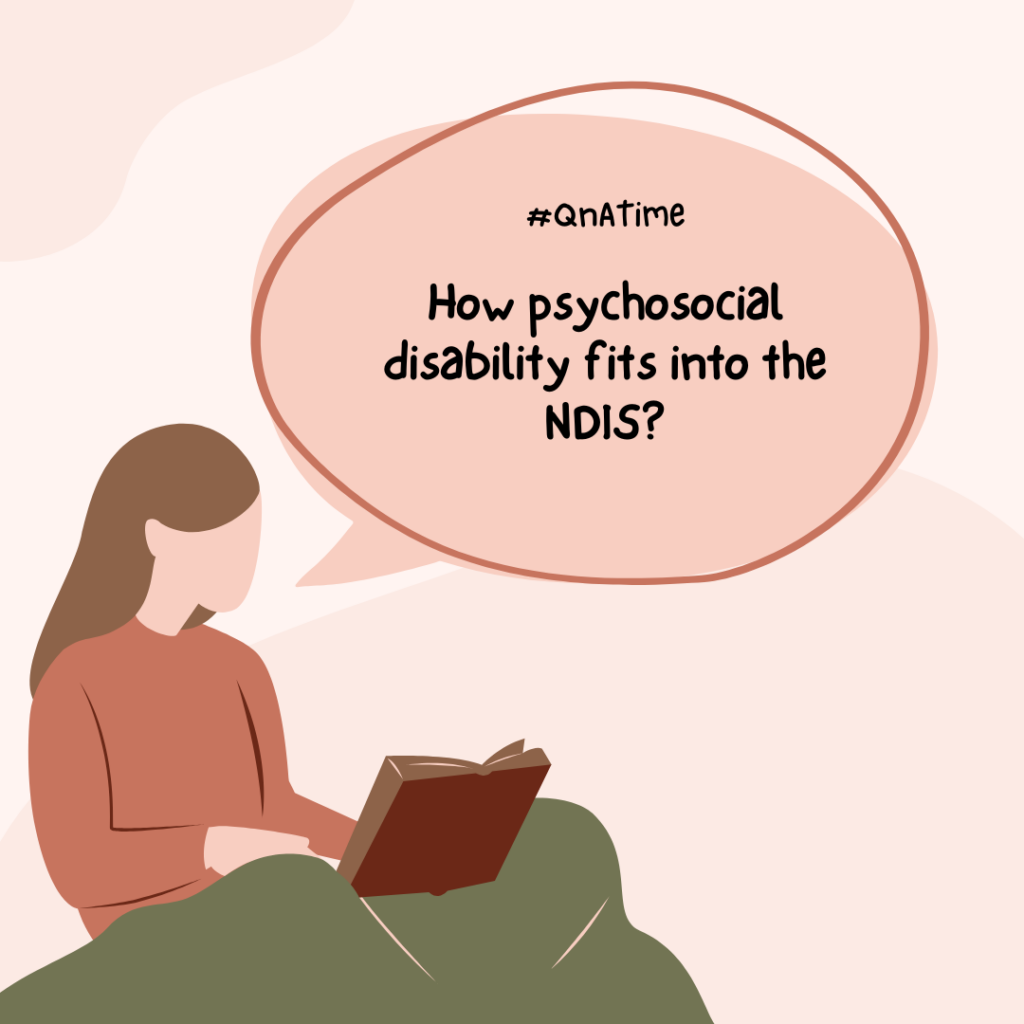
In recent years, there has been a growing recognition of psychosocial disability and its impact on individuals’ lives. With the advent of the National Disability Insurance Scheme (NDIS) in Australia, there’s been a significant shift in how mental health conditions are addressed within the disability support framework. However, understanding how psychosocial disability fits into the NDIS can be complex. In this post, we’ll delve into the nuances of psychosocial disability within the NDIS and explore avenues of Support and Therapy at Home, with a special focus on Adelaide.
Understanding Psychosocial Disability
Psychosocial disability encompasses a range of mental health conditions that significantly impact an individual’s social and emotional well-being. These conditions may include depression, anxiety disorders, bipolar disorder, schizophrenia, and post-traumatic stress disorder (PTSD), among others. Individuals with psychosocial disabilities often face challenges in daily functioning, social interaction, and maintaining employment.
What is Psychosocial Disability?
Psychosocial disability arises from a mental health condition that significantly affects a person’s ability to participate in everyday activities. Unlike physical disabilities, psychosocial disabilities can be less visible and often come with stigma and misunderstanding. Conditions that might lead to psychosocial disability include:
- Schizophrenia
- Bipolar disorder
- Severe depression
- Anxiety disorders
- Post-traumatic stress disorder (PTSD)
Individuals with psychosocial disabilities may struggle with various aspects of daily life, including maintaining employment, building social relationships, and managing self-care.
The NDIS and Psychosocial Disability
The NDIS recognizes psychosocial disability as a legitimate category of disability that requires tailored support. Here’s how it fits into the NDIS framework:
- Eligibility: To access the NDIS, individuals must demonstrate that their psychosocial disability significantly impacts their ability to function in one or more areas of daily life. This includes challenges in communication, social interaction, learning, mobility, self-care, and self-management.
- Individualised Plans: The NDIS creates personalised plans that cater to the specific needs of each participant. For those with psychosocial disabilities, plans may include supports such as:
- Therapeutic services (e.g., counseling, psychiatric services)
- Skill development programs (e.g., social skills training, vocational training)
- Assistance with daily living activities
- Support for community participation and inclusion
- Employment support services
- Recovery-Oriented Approach: The NDIS emphasizes a recovery-oriented approach to psychosocial disability. This means focusing on the strengths and goals of the individual, rather than just the symptoms of their condition. Support plans are designed to help individuals build independence, achieve personal goals, and improve overall well-being.
- Support Coordination: For many participants with psychosocial disabilities, navigating the various supports and services can be overwhelming. The NDIS provides support coordination to help individuals understand their plans, connect with service providers, and manage their supports effectively.
Benefits of NDIS Support for Psychosocial Disability
The inclusion of psychosocial disability in the NDIS offers several benefits:
- Improved Quality of Life: Access to comprehensive and tailored support can significantly enhance the quality of life for individuals with psychosocial disabilities.
- Empowerment and Independence: By focusing on individual strengths and recovery, the NDIS empowers participants to take control of their lives and work towards greater independence.
- Reduced Stigma: Recognising psychosocial disability within a national framework helps to validate the experiences of those affected and reduce the stigma associated with mental health conditions.
- Holistic Support: The NDIS provides a holistic support system that addresses various aspects of life, from health and well-being to social inclusion and employment.
Challenges and Considerations
While the NDIS offers significant support for psychosocial disability, there are challenges to consider:
- Awareness and Understanding: Ensuring that all stakeholders, including service providers and the general public, understand psychosocial disability is crucial for effective support.
- Consistency in Services: Access to consistent and high-quality services across different regions can vary, impacting the effectiveness of support for some participants.
- Navigating the System: The complexity of the NDIS system can be daunting, particularly for individuals with psychosocial disabilities who may already face cognitive and emotional challenges.
Integration into the NDIS
The NDIS aims to provide support and services to individuals with disabilities, including those with psychosocial disabilities. To be eligible for the NDIS, individuals must meet certain criteria, including experiencing a permanent and significant disability that affects their ability to participate fully in daily life activities.
For those with psychosocial disabilities, eligibility criteria are based on the impact of the condition on functional capacity rather than a specific diagnosis. This means that individuals will need to demonstrate how their mental health condition affects their ability to engage in daily activities such as self-care, social interactions, and employment.
Support and Therapy at Home in Adelaide
Adelaide, known for its vibrant culture and community spirit, also offers a range of support and therapy options for individuals with psychosocial disabilities. One notable provider in this space is Support and Therapy at Home Adelaide.
Support and Therapy at Home Adelaide offers personalized support services tailored to the unique needs of individuals with psychosocial disabilities. Their team of qualified professionals, including psychologists, social workers, and occupational therapists, work closely with clients to develop personalized support plans aimed at enhancing independence, improving well-being, and achieving personal goals.
From assistance with daily living activities to specialized support sessions, Support and Therapy at Home Adelaide offers a holistic approach to support individuals in their journey towards recovery and empowerment. Their services can be delivered in the comfort of the client’s home, providing convenience and flexibility in accessing support.
As awareness of psychosocial disability grows, it’s crucial to ensure that individuals have access to the support and services they need to thrive. The NDIS plays a vital role in providing support to individuals with psychosocial disabilities, and navigating its intricacies can be made easier with the right information and guidance.
In Adelaide, organizations like Support and Therapy at Home Adelaide are leading the way in providing high-quality, personalized support services for individuals with psychosocial disabilities. By leveraging their expertise and dedication, individuals can access the support they need to lead fulfilling lives within their community.
If you or someone you know is living with a psychosocial disability, don’t hesitate to explore the support options available through the NDIS and Support and Therapy at Home Adelaide. With the right support and resources, individuals can overcome challenges and thrive on their journey towards recovery and well-being.
Talk to us today
For more information, contact us on +61 451 588 200 or make an enquiry now.


